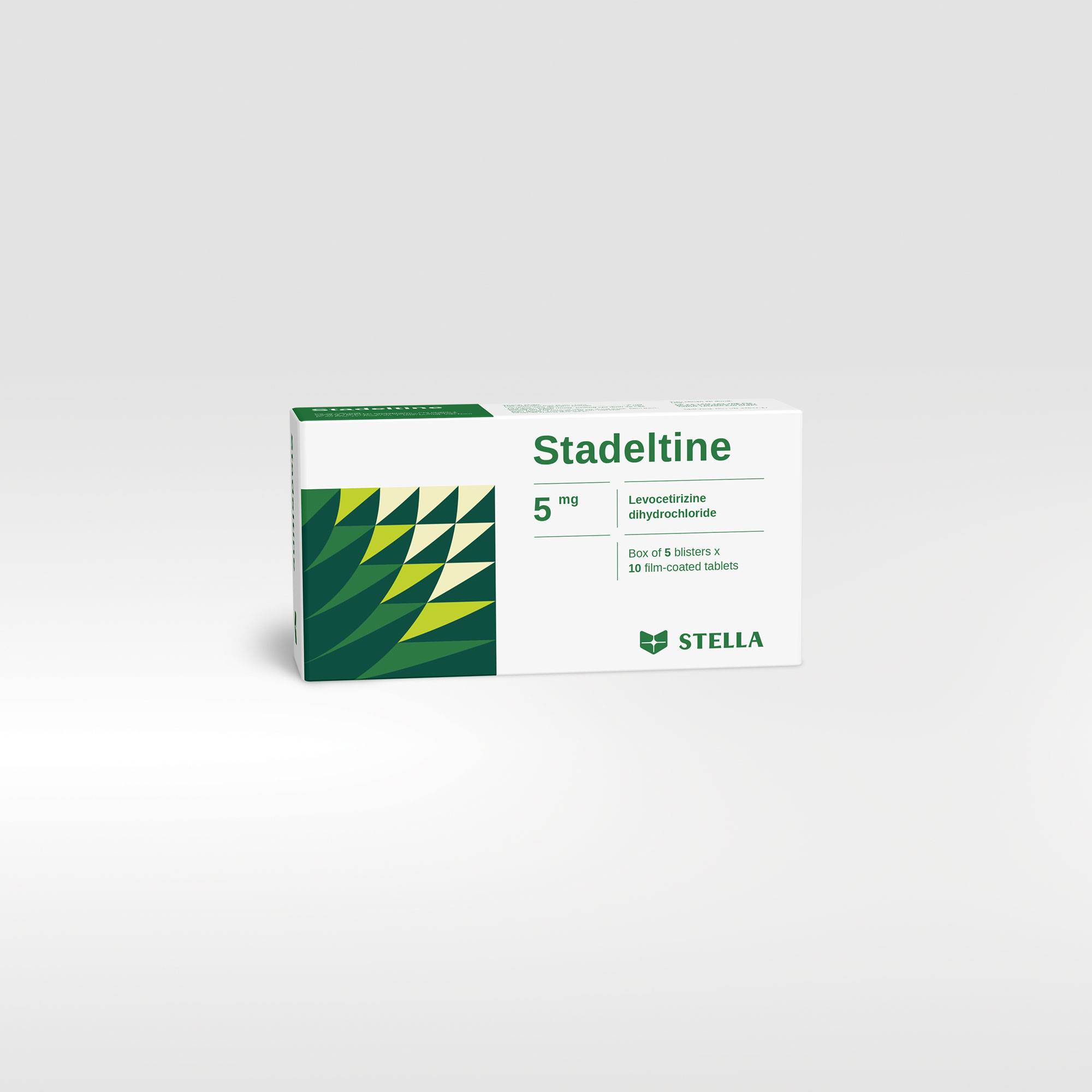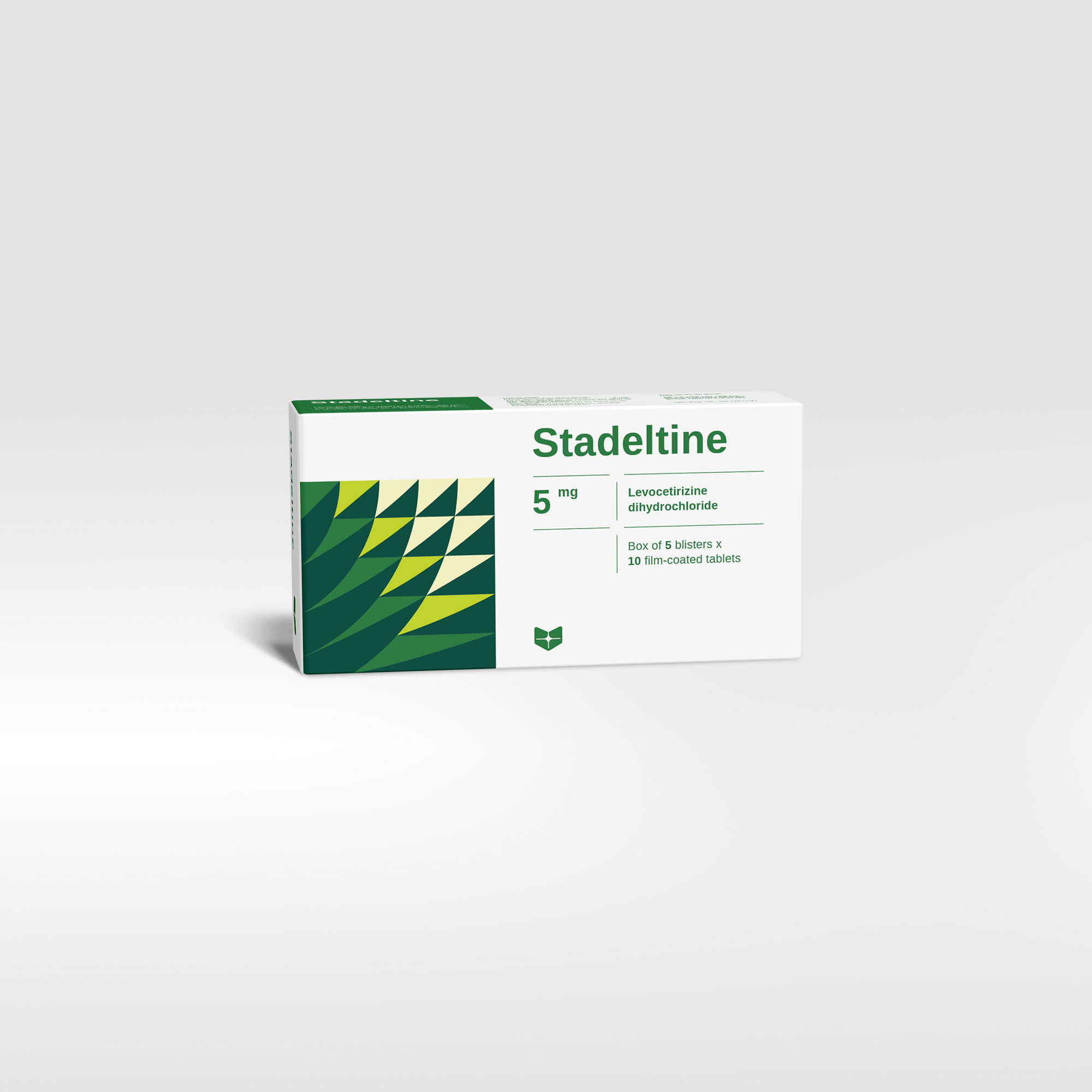Stadeltine OTC
Stadeltine contains levocetirizine dihydrochloride, an anti-histamine. Levocetirizine, the active enantiomer of cetirizine, its principal effects are mediated via selective inhibition of H1 receptors. Levocetirizine is rapidly and extensively absorbed following oral administration.
| Pack size | Box of 10 tablets, 50 tablets. Bottle of 100 tablets |
| Shelf-life | 36 months |
| Composition | Levocetirizine dihydrochloride |
| Dosage forms and strengths | Film-coated tablet: 5 mg |
Product code :













